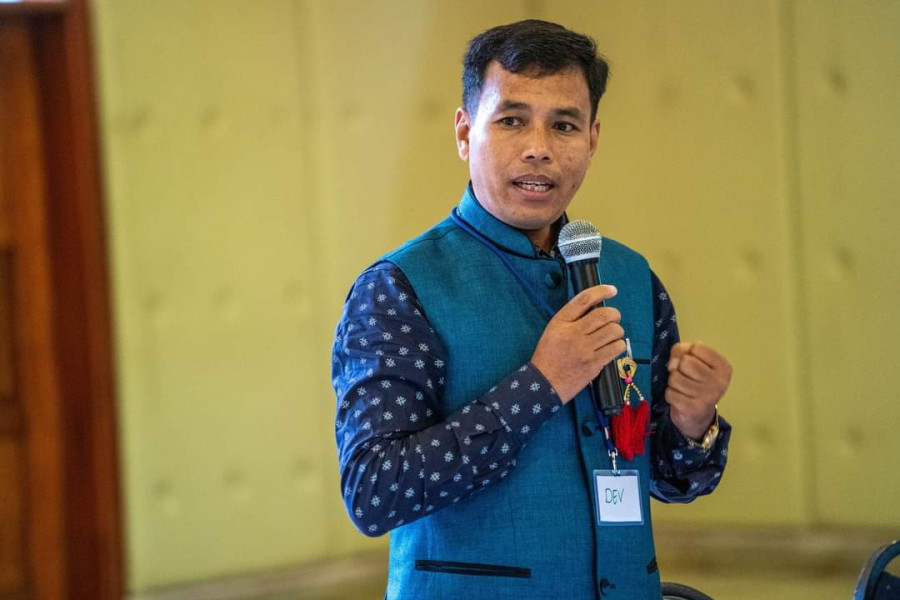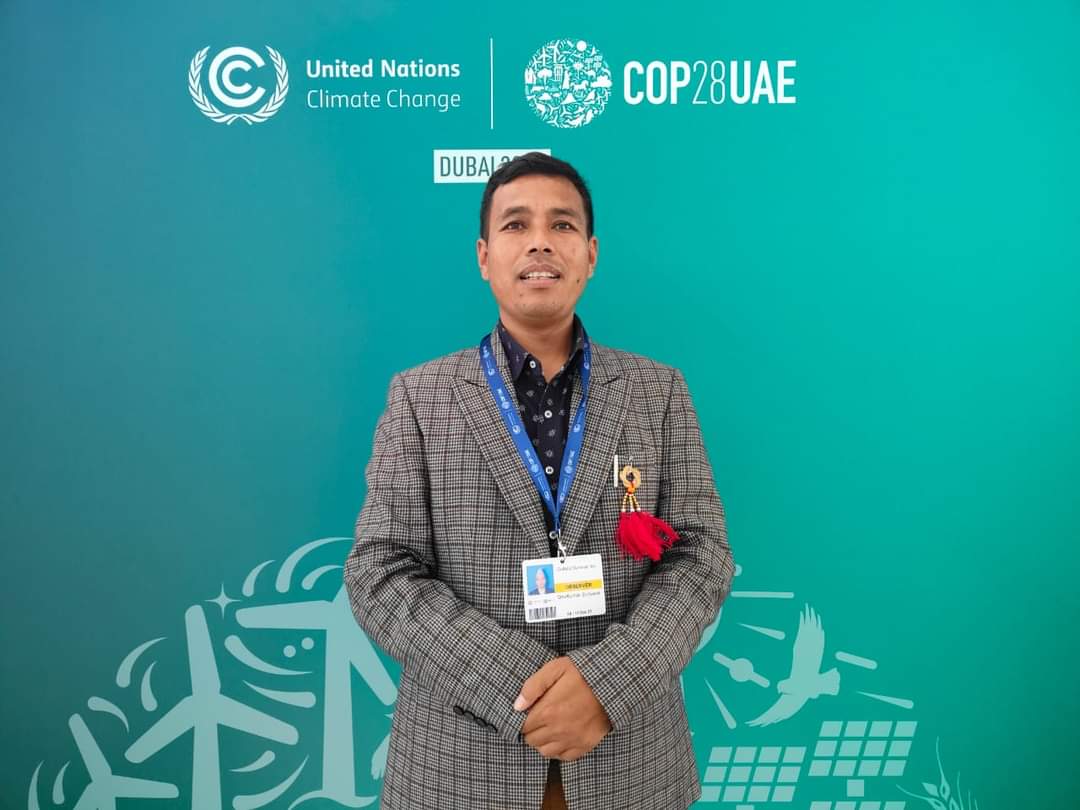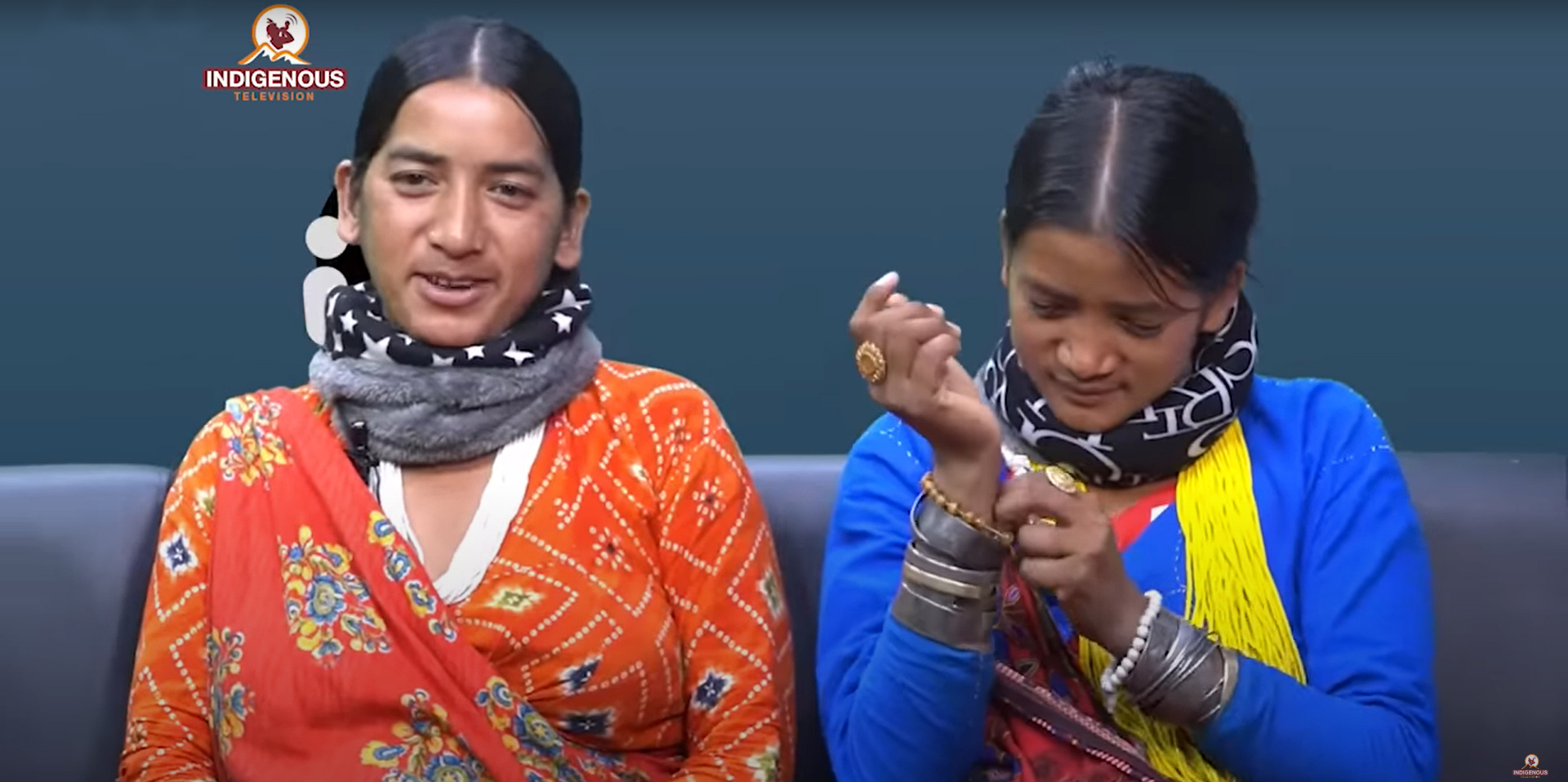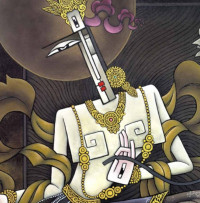Culture & Lifestyle
A vocal champion of indigenous rights
Journalist Dev Kumar Sunuwar has broken barriers in media representation of the indigenous community.
Aarati Ray
Journalist Dev Kumar Sunuwar is best known for his advocacy for indigenous rights and issues. He is an advisor to the UN Secretary-General for the Asia-Pacific indigenous community and is on the advisory board of trustees for the UN Voluntary Fund for Indigenous Peoples.
Additionally, Sunuwar coordinates Cultural Survival’s Asia programme, representing the concerns of the indigenous community at UN forums. He is also the coordinator of the Indigenous Media Caucus at the UN Permanent Forum on Indigenous Issues (UNPFII), facilitating connections among global indigenous broadcasters and communicators.
Yet, Sunuwar had very different aspirations growing up. Born in Kubukasthali village in Ramechhap, in a Koits-Sunuwar family, he reveals that he never imagined pursuing a career in media. Instead, he wanted to become a trekking guide. Koits-Sunuwars are one of Nepal’s 59 legally recognised indigenous groups.
Sunuwar says he faced considerable challenges growing up. Even basic necessities like salt and oil were hard to come by in his village. Obtaining them meant going on a day-long walk to reach the nearest town. During these trips, he often saw trekking guides accompanying tourists. He remembers them being good at conversing in English, enjoying good food and staying at hotels. “All of this made it seem like being a trekking guide would give me an easier life,” says Sunuwar.

As his village didn’t have institutions that provided formal education beyond the tenth grade, Sunuwar moved to Kathmandu after giving his SLC (now SEE). Here, he took on various odd jobs before discovering his passion for journalism and law. He claims that among the 55,722 Koits-Sunuwar in Nepal, he is the only one who pursued journalism.
“Seeing the lack of representation of our community in media inspired me to pursue it as a career,” says Sunuwar, who now holds three master’s degrees—in journalism and mass communication, political science, and law, with a specialisation in international law and human rights, all from Tribhuvan University.
His journey in media started as an intern at the Post in 2005. He later became a reporter for the paper. In 2013, he furthered his expertise as an investigative reporter at the Center for Investigative Journalism-Nepal, focusing on health-related investigative reports.
In 2010, Sunuwar obtained an indigenous fellowship at the Office of the High Commissioner for Human Rights (OHCHR). During the fellowship, he researched intensively on provisions related to the right to information in one’s mother tongue, a topic that deeply resonated with him due to his own struggles with Nepali language education and examinations. This, in turn, prompted him to research and write about the Koits-Sunuwar community and indigenous issues across Nepal.
Transitioning from mainstream media in 2012, he returned to his village to help establish and operate two community radio stations, Radio Kairan and Radio Likhu.
Sunuwar returned to Kathmandu in 2013 to get a license for a TV station. This, he reveals, took him 13 months. “Media outlets should operate in language other than Nepali. About 36 percent of Nepal’s population is indigenous. All of us should get to enjoy media in our mother tongues,” says Sunuwar.
Collaborating with his peers, Sunuwar co-founded the Indigenous Media Foundation, alongside several community radio stations and Indigenous Television in 2016. It delivers round-the-clock news as well as various educational, entertainment and informative content in native languages. According to its website, Indigenous Television is “the first indigenous community television station in South Asia and Nepal.”

Securing funding for the station was another big challenge for Sunuwar. He laments that when people hear about Indigenous Television, they often assume it caters exclusively to certain groups and does not feature advertisements, which he finds frustrating.
Throughout his journey, Sunuwar encountered discrimination due to his background and identity as an indigenous individual. He remembers being denied opportunities in broadcast media, with people claiming that individuals with his skin colour and background don’t suit TV. He hopes to represent individuals from all indigenous communities through his media outlets, so that no child feels like they don’t belong in the media.
Sunuwar says he wants to expand Indigenous Television’s content to more languages, but is facing difficulties due to limited manpower in the media sector. He aims to provide a platform for minorities, including Madhesis, Muslims, and individuals from the LGBTQIA+ community, who still lack representation in mainstream media.
During the Covid-19 pandemic, Indigenous Television’s broadcasting of public service announcements in indigenous languages was applauded by the UN and OHCHR through their bulletins. Sunuwar believes that this recognition has sparked a burgeoning interest among young people from the indigenous community in media careers.
With Nepal’s commitment to the United Nations Declaration on the Rights of Indigenous Peoples (UNDRIP) project, mandating mother tongue curricula and language-focused content creation, Sunuwar sees a fresh opportunity for indigenous languages and television.




 13.12°C Kathmandu
13.12°C Kathmandu















